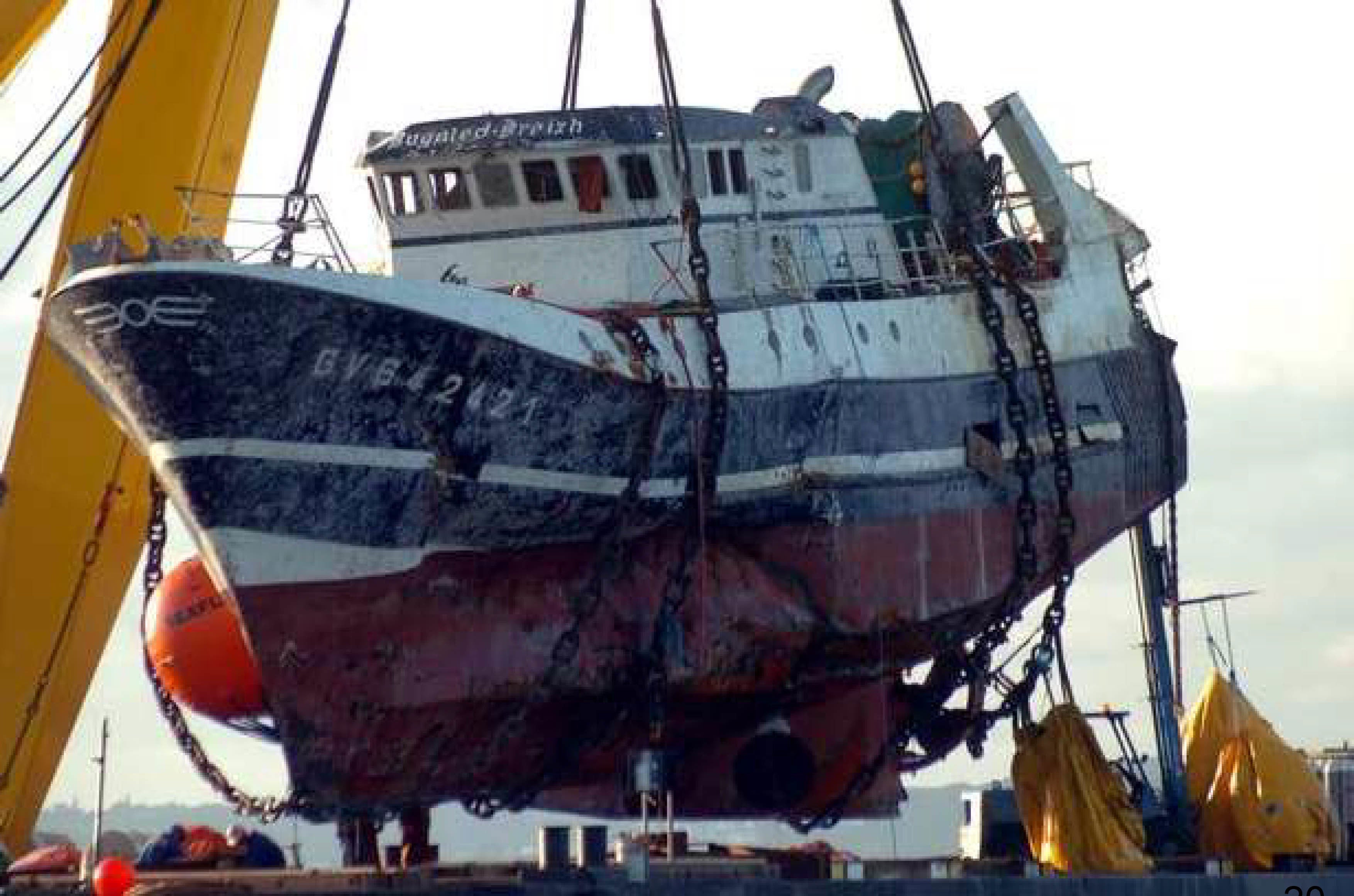Judge to consider if submarines were involved in fatal trawler sinking
Five men died after the Bugaled Breizh trawler capsized and sank off the Cornish coast

Your support helps us to tell the story
From reproductive rights to climate change to Big Tech, The Independent is on the ground when the story is developing. Whether it's investigating the financials of Elon Musk's pro-Trump PAC or producing our latest documentary, 'The A Word', which shines a light on the American women fighting for reproductive rights, we know how important it is to parse out the facts from the messaging.
At such a critical moment in US history, we need reporters on the ground. Your donation allows us to keep sending journalists to speak to both sides of the story.
The Independent is trusted by Americans across the entire political spectrum. And unlike many other quality news outlets, we choose not to lock Americans out of our reporting and analysis with paywalls. We believe quality journalism should be available to everyone, paid for by those who can afford it.
Your support makes all the difference.An inquest into the deaths of two French fishermen who died when their trawler boat sank off the British coast will consider whether nearby submarines on exercise were involved.
All five people on board were killed when the Bugaled Breizh vessel capsized and sank 14 miles from the Lizard peninsula on the Cornish coast on 15 January 2004.
The bodies of French nations, Yves Marie Gloaguen, 45, and Pascal Lucien Le Floch, 49, were recovered by UK search and rescue then taken to Cornwall.
An empty life raft was also found in the hours after the first distress calls were received.
The fact their bodies were taken to the Royal Cornwall Hospital means that by law, an inquest into their deaths must be held here instead of in France.
The body of Patrick Gloaguen, 35, was recovered in a following salvage operation and taken to France - therefore not a subject of this inquest - and the bodies of Georges Lemetayer, 60, and Eric Guillamet, 42, have never been found.
The inquest, held at London’s Royal Courts of Justice, hopes to determine whether three submarines - Dutch, German and British - that were all operating on exercises within roughly a 185km distance of the Bugaled Breizh were involved.
It has been suggested that one of the submarines - all of which were preparing for Nato training exercises - became entangled in the Bugaled Breizh’s trawling gear, causing it to capsize.
The question about the submarines’ involvement was repeatedly raised during a lengthy French investigation that concluded in 2016 after finding no evidence to support the theory.
The Ministry of Defence has always denied involvement of its submarine.
The UK inquest - which was adjourned in 2020 due to coronavirus restrictions - is presided over by Judge Nigel Lickley QC, who said it aims to “consider in proper detail the question of how the Bugaled Breizh came to sink” and “look at whether any submarines might have been involved.”
He said the Ministry of Defence would be represented throughout, adding: “There has been considerable cooperation between the interested persons.”
Judge Lickley said despite not being able to make findings of criminal or civil liability, if the evidence did point to another vessel being involved in the sinking “then I can say so”.
Thierry Lemetayer, the son of Georges Lemetayer, said in a statement at the beginning of the inquest that he hoped it would “light a little red light in the heads of European submarine commanders so they take into account other boats when doing their exercises”.
The inquest, which is scheduled to last three weeks, continues.
Join our commenting forum
Join thought-provoking conversations, follow other Independent readers and see their replies
Comments